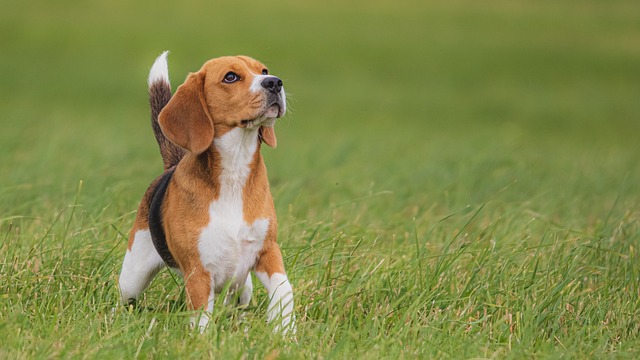
You may be a novice when it comes to training a dog. That means you will want great tips and ideas on how to properly do this training. This will allow you to create the best behaviors for your pet. Here are a few tips you can use to get started.
Decide on a specific command phrase for your pup during house training. For example, you could use the phrase, “go potty” when you take them outside to help them remember what to do when you go outside and say the command.
Always have a treat for rewarding your dog. You want to be able to reward your dog when he does what you want him to do. This helps the dog understand what is right and what is wrong.
Begin your training regimen with an easy task for your dog. This will help you to see the progress you are making, regardless of how small or slow it is. It will also ensure that your dog truly comprehends each step of the training process. This gives you greater results when training.
The daily training sessions with your dog should be fun. Your dog will bond with you the more fun you have together, and this helps the dog give a positive response. Training can be a good and fun time with your dog, but you should also set aside time that is just for play.
Teach your dog not to bark with a simple command. If your dog barks, repeat the order, offer a treat when they stop barking and pet them to show you are satisfied. Then, you can award your dog with a treat. By consistently repeating this, your dog will be quiet because he wants the treat.
Over-training your puppy will expose it to too much at once, rendering the training less effective. Brief, simple, positive training sessions are well-suited to the limited supply of energy and attention a pup has to work with. If you do too much the puppy will just forget what you have taught him, and remember it in a negative way, it will be harder to help him in the end.
Do not give your dog too many treats; you could make him gain some weight when you offer an excessive number as rewards. To keep your dog healthy, you really need to monitor their treat intake. It’s an aspect often overlooked.
Let your dog socialize, which can really help to develop their skills. Your dog will only learn how to behave around people, dogs, cats and so on by experience. This helps reduce unacceptable behavior in social environments.
Dog training should be a fun and rewarding experience. Keep the sessions between 10-15 minutes, as this is about the attention span of most dogs. The dog should be given ample rewards in various forms. Dogs get a kick of compliments and praise. When you make training fun for your dog, it will make listening in general fun for the dog too!
Challenge your dog frequently. Test the dog occasionally to check his memory, even though both of you know that he remembers his commands.
Activities and the environment can play a role in excessive barking. This way you can avoid the things that trigger barking. For example, if strange people or animals cause your dog to bark, then you might need to spend more time socializing.
Make use of a crate when training your dog. To make training more effective, consistency is the key. With a little patience, crate training can make a dog very unlikely to make a mess in the house.
To keep your dog going digging through trash, then keep him fed well and surrounded by toys. Never put items in the trash that your dogs would not be safe eating. Crate your dog or empty your trash can if you plan on going out.
Show your leader status while doing fetch training by having the dog return the ball. The dog will think of itself as the leader if you pick up the ball after it drops it. You must teach your dog to always bring the ball directly to you each and every time.
Always reinforce positive behavior in your dog. Punishing your dog whenever he or she does something wrong is not always necessary. Instead, just ensure you aren’t reinforcing bad behavior. Negative enforcement can make the dog fear you. Positive reinforcement will ensure that your dog will want to do good things more often in order to receive treats and praise.
Training does involve stopping bad behaviors. Use a firm voice when saying “no.” Don’t yell at dogs nor hit them. Make sure you discourage the bad behavior as it happens or soon after it happens. Dogs do not remember things for too long. By waiting, your dog will simply get confused.
As the tips above show, your puppy training will really pay off when your dog is behaving the way that you would like. When you put these ideas into action, you will become more proficient with training your dog. You will be taking the first steps towards becoming an expert.
Recent Comments